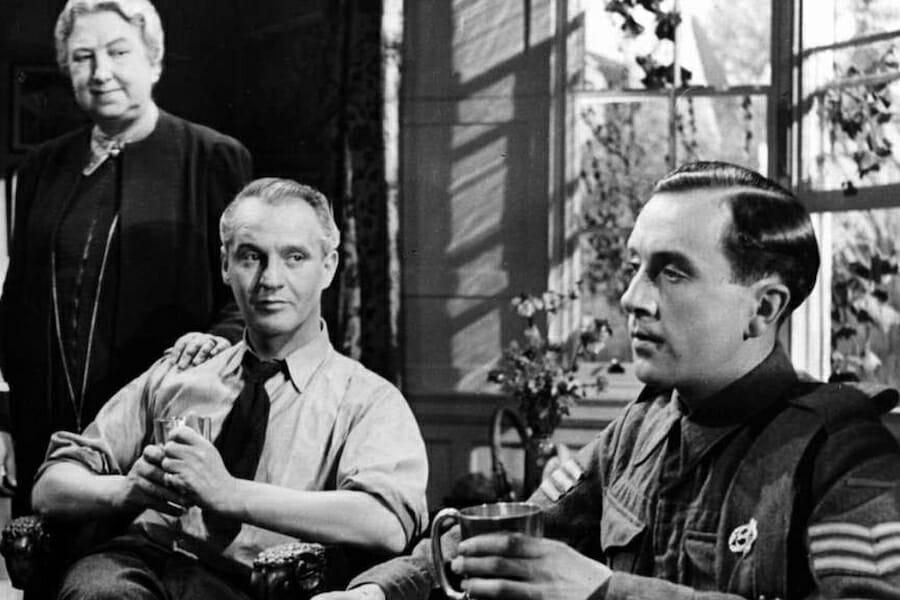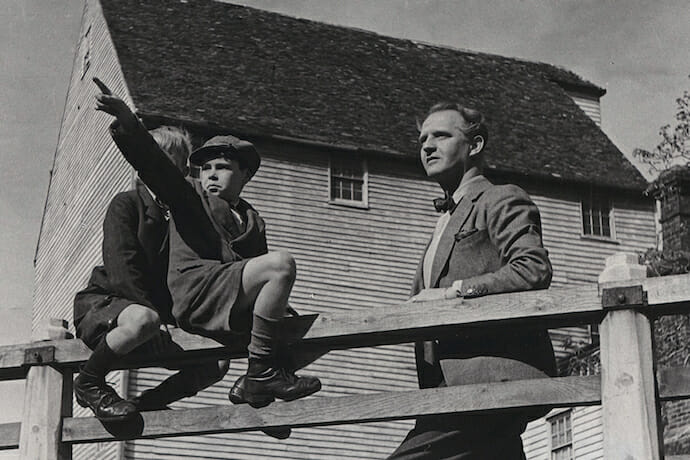
The Finesse of ‘A Canterbury Tale’: A Personal and Professional Account by the Treasurer of the Rochester Film Society
A Canterbury Tale is arguably a typical example of 20th century British cinema. The 1944 film co-directed by Michael Powell and Emeric Pressburger tells the story of three young people who are in search of their destiny on separate journeys. Their paths cross in a small Kent town on the road to Canterbury. They include a British Army Sergeant called Peter Gibbs, a US Army Sergeant named Bob Johnson and a Land Girl, Miss Alison Smith.
Inspired by Geoffrey Chaucer’s collection of stories The Canterbury Tales, the film revolves around the theme of pilgrimage, promoting Anglo-American wartime friendship and collaboration. The coming May marks the 73rd anniversary of the screening of the film. Its premiere is always referred to as a success.
The last survivor among the film’s cast was Sheila Sim who passed away in January 2016. The Liverpool-born film and theatre actress had appeared in films such as The Guinea Pig and West of Zanzibar.
The treasurer of Rochester Film Society, who is a regular cinema-goer himself, had watched A Canterbury Tale, and calls it “an important example of how film was deployed in mobilization of the civil population in advance of the D-Day landings in 1944.”
Rochester Film Society is a not-for-profit film society run by a group of volunteers. It’s a member of Cinema for All, Film Hub South East (FHSE) and the BFI Film Audience Network (FAN).
Andy Brittan, however, says the movie hasn’t been screened by any of the affiliated theatres of the Rochester Film Society so far, even though it had been considered.
Mr. Brittan has been a member of Rochester Film Society since its foundation in 2012. He considers himself a keen film fan and supporter of independent, European and world cinema. He was a student in Portsmouth as a member of the Rendezvous Cinema in the Hornpipe Arts Centre.
Andy Brittan is a professional historian turned social researcher working in a central government department. He specializes in housing and welfare issues after working in social housing since the late 1980s.
What does the Society do?
Rochester Film Society was launched in 2012 with the intention of screening films not usually shown at local cinemas, including British, American and other world cinema productions. According to Andy Brittan, it has shown more than 110 films since October 2013 to over two thousand people, mostly the residents of Rochester and the Medway towns.
The films screened by the society are varied and according to Mr. Brittan, “reflect the best of contemporary independent and world cinema.”
An open invitation to all members of the society makes it possible for them to take part in a democratic decision-making process and select the films that are going to be shown. Membership is open to the audience through joining its mailing list available online through the organization’s website.

But, how are these films sourced? Andy Brittan responds: “the sourcing of films tends to be from those seen on first run in independent cinemas in London or Canterbury where members tend to see titles or from reviews they have read or seen.”
The society has recently received unsolicited approaches from independent filmmakers that have also been considered.
What about A Canterbury Tale?
The Rochester Film Society hasn’t screened A Canterbury Tale and maybe it’s one of the mishaps of the flourishing organisation trying to promote the best artistic products of the United Kingdom and the world in the region.
“We have not screened A Canterbury Tale, but we did show Pressburger and Powell’s A Matter of Life and Death at Rochester Cathedral in 2013,” Andy Brittan said. “We don’t have specific plans for the public screening of the film at the moment, but it is a film we would consider in the future,” he added.
That said, as a regular movie-watcher and cinema-goer, Mr Brittan has seen the film himself: “I am a regular movie-watcher and cinema-goer and have been for many years. My interest in film started when I was a student and developed as a regular viewer of Alex Cox’s Moviedrome, which showcased films on BBC 2 between 1988 and 1994.
“I have seen A Canterbury Tale and consider it as one of Pressburger and Powell’s finest films and an important example of how film was deployed in mobilisation of the civil population in advance of the D-Day landings in 1944.”
D-Day landings, also referred to as the Normandy landings happened on Tuesday, 6th June 1944 in Operation Overlord during the World War II.
Why is the film important to Kent?
A Canterbury Tale is a proficient narrator of the history of Kent being entangled in the World War II.
Andy Brittan agrees that the film appeals to the people of Kent and England in general because it’s telling the story of the ups and downs they have been through historically: “It was part of the efforts in advance of the D-Day landings in 1944 to bring about greater understanding of the American forces in Kent and Southern England. It has been described as one of the most loving and tender films about England ever made. It’s a picture that’s steeped in nature, in thrall to myth and history; a reaffirmation of the English character, customs and countryside from a time when many viewers may have wondered whether this underpinning had been kicked clean away.”
A fine film by fine directors
The co-director of A Canterbury Tale was one of the distinguished figures of British cinema in the 20th century. Michael Powell was nominated for Academy Awards three times and won a Cannes Film Festival Grand Prize in 1959. Martin Scorsese had called him one of his closest professional contacts. Powell was born in Kent.
Mr. Treasurer doesn’t dispute the idea that Powell was a brilliant filmmaker: “Along with Emeric Pressburger, he wrote, produced and directed a number of classic British films in the 1940s and early 1950s, notably 49th Parallel, The Life and Death of Colonel Blimp, A Matter of Life and Death, Black Narcissus, The Red Shoes and The Tales of Hoffmann.”
However, the fact that such a gifted filmmaker isn’t sufficiently recognized for his Kent ties is surprising to Andy Brittan: “his importance was recognized from the 1970s onwards and he has been a major influence on filmmaking and directors in the last forty years. His links with Kent are probably not that well known which is rather a shame.”
World cinema products on display in Rochester
Rochester Film Society has screened several important titles of world cinema over the last two years. Some of the major works include The Lunchbox (India), Ida (Poland), Leviathan (Russia), Wild Tales (Argentina), A Girl Walks Home Alone at Night (Persian-language/USA), Timbuktu (Germany), The Tribe (Ukraine), and Tale of Tales (Italy/France/UK).
Andy Brittan commends all the films that have been shown for their quality and popularity, saying that they went through rigorous processes to finally get the greenlight for public screening. By virtue of my nationality, I always wondered if such a prestigious film society ever considered showing an award-winning Iranian drama such as The Salesman or A Separation and if there was particularly a special film that became a very well-liked and prominent.
“It’s difficult to say which was the most prominent, as most were international award winners, but Ida was a near sell out. We have not shown A Separation; we did consider it. However, we did screen A Girl Walks Home Alone at Night,” he said.
Some concluding remarks
Andy Brittan thinks of A Canterbury Tale as a film upholding sublime values of courage, sacrifice and compassion and representing them through concrete and tangible frames: “the film’s genius lies in the way it connects these big, sweeping themes to the intimate, the eccentric and the everyday. It’s the human details that give it life, and the film is always beautifully played.”
He specifically acclaims the late actor Eric Portman for his role as the “rigid local magistrate” and Dennis Price for representing a “hard-bitten soldier who refuses to name the thing he loves.”
